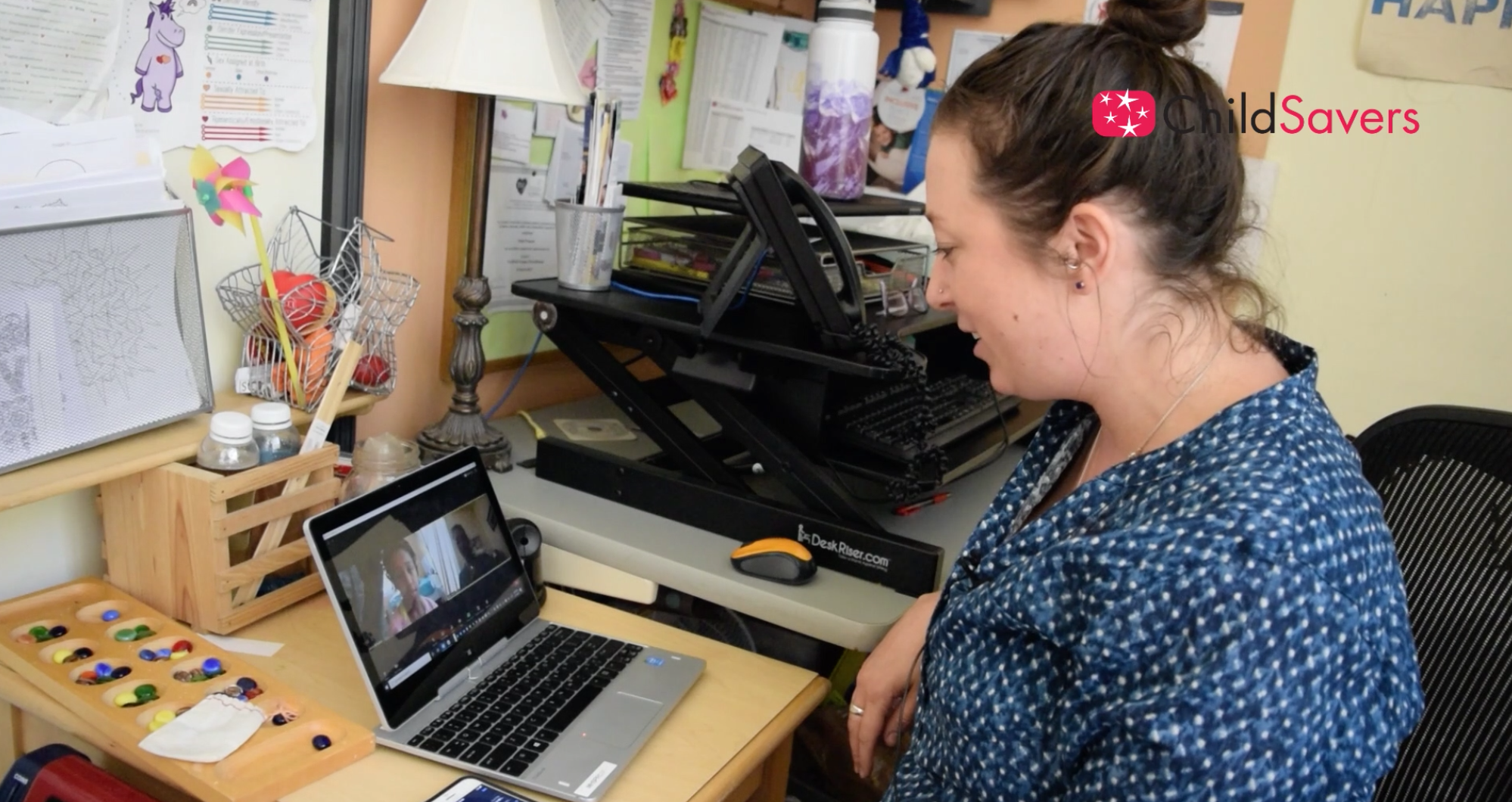

Necessity is often the mother of invention. Since the onset of COVID-19, mental health providers across Virginia have been forced to rethink how they deliver treatment to those children and families in need.
Recent physical distancing and stay-at-home orders have resulted in providers rapidly adapting and deploying innovative solutions to maintain accessibility and delivery of mental health care. Fortunately, telehealth has created new opportunities to engage children and families in therapy and facilitate peer connections, extending the reach of services and supports that were previously only available in-person.
For many behavioral health providers, the pandemic represented a rapid, seismic shift in the way critical mental health services could be delivered. Prior to COVID-19, most mental health services were delivered in-person only. Within a matter of days/weeks, community mental providers across the Commonwealth took swift and immediate action to ramp up their ‘tele-mental health’ capacity. Their speedy transition to tele-mental health is driven by their commitment to ensuring that all children have access to critical mental health services during this time of peril. Richmond-based children’s mental health provider, Childsavers immediately shifted service delivery and pivoted to tele-mental health.
For nearly a century, ChildSavers, has provided trauma-informed mental health services to thousands of children in the Greater Richmond region. Before COVID-19, ChildSavers provided mental health treatment to children at their Richmond clinic, at schools and in the community. When COVID-19 hit, ChildSavers knew that the need for trauma-informed mental health services for children would only increase, so they quickly shifted and immediately scaled-up their telehealth capabilities.
The Value of Tele-mental health during the Pandemic
Katie Francis, Licensed Clinical Social Worker, Registered Play Therapist and Mental Health Program Manager at ChildSavers has seen the benefits of expanding access to mental health services through telehealth. “Recent changes to telehealth therapy regulations has been immensely helpful and helped our clinicians to stay connected with clients during the pandemic.” Because of these regulatory changes, “We are now able to offer phone and audio-visual sessions to children and families, which allows us to see our clients in their home environment and creates an opportunity to meet with families members that we may not have had access to prior to COVID-19.” For children with the greatest mental health needs, Katie says that behavioral health practitioners are now able to offer their clients multiple touchpoints throughout the week that could include individual and family therapy sessions.
Research indicates that more frequent treatment leads to better mental health outcomes for kids. “As a result of the recent changes to telehealth regulations, our clients are missing therapy sessions less often and we’ve been successful at engaging our clients in multiple therapy sessions per week– allowing us to practice skills together more frequently.”
| “While telehealth is not a replacement for face-to-face treatment altogether, we’ve learned that expanding telehealth has improved access to mental health treatment for families who do not feel safe leaving their home, allowed families greater flexibility to seek treatment during non-traditional work hours and allowed us the opportunity to offer treatment multiple times a week to those children in need.” |
CALL TO ACTION
It took a public health crisis to convince federal and state regulators to allow mental health services to be delivered via telehealth, now tele-mental health is gaining momentum among providers in Virginia.
For many mental health providers, the pandemic presented an unexpected opportunity to scale-up and invest limited resources to shift towards a telehealth model. As parts of Virginia move to ‘Phase 1’ of reopening, many mental health providers are concerned that they will be expected to revert back to ‘business as usual’, ending reimbursement for tele-mental health services. Instead, Virginia should capitalize on this unexpected opportunity and take steps toward allowing some level of telehealth to remain in place. Maintaining the current approach to telehealth, free of burdensome regulations, will keep barriers to accessing mental health services low.
For change to occur, however, providers, families and advocates must convince state and federal regulators to make these regulatory changes permanent.
“As a licensed mental health clinician, registered play therapist and clinical supervisor, we are asking policymakers to extend temporary regulations to allow mental health treatment to be offered via telehealth, beyond COVID-19.”
Read More Blog Posts